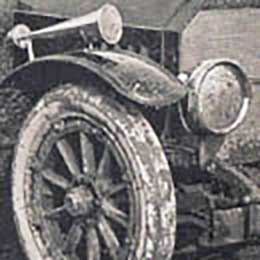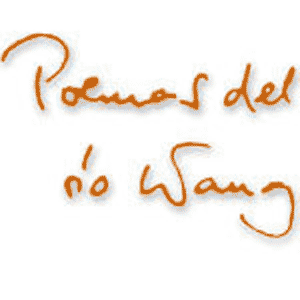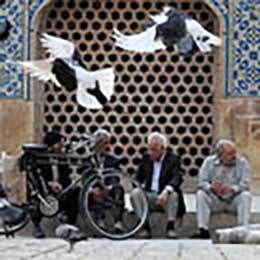
In the last week, on the first warm day of the spring a peculiar service took place in Moscow’s
 Church of Saint Cosmas and Damian in Shubino. Homeless people from the railway stations and from the streets gathered together to commemorate about their companions who had frozen to death during this winter.
Church of Saint Cosmas and Damian in Shubino. Homeless people from the railway stations and from the streets gathered together to commemorate about their companions who had frozen to death during this winter.
There are no official statistics about how many people died of cold in Moscow in this season. The participants of the service commemorated about fifty companions by name. But according to Svetlana Fayn, leader of the group of volunteers “Friends on the street” or “Friends of the Sant’ Egidio Community” there were probably several hundreds of deaths.

The group which for several years has organized this early spring memorial service got their name from the Sant’ Egidio Community in Rome. This latter was founded in 1968 by Roman university students going out to the slums of the city to hold afternoon schools and later to take care of the poor and the sick. In 1973 they obtained the empty
 convent of Sant’ Egidio in the Trastevere, and since then they maintain an organized network of provision for the poor, handicapped, homeless and immigrants, now in more than seventy countries of the world, with the collaboration of fifty thousand volunteers. The community actively promotes the collaboration of cultures and religions, and thus they also have several Orthodox Christian groups all over Russia and Ukraine, including the “Friends on the street” taking care of the homeless in Moscow.
convent of Sant’ Egidio in the Trastevere, and since then they maintain an organized network of provision for the poor, handicapped, homeless and immigrants, now in more than seventy countries of the world, with the collaboration of fifty thousand volunteers. The community actively promotes the collaboration of cultures and religions, and thus they also have several Orthodox Christian groups all over Russia and Ukraine, including the “Friends on the street” taking care of the homeless in Moscow.
The volunteers of the group regularly visit the railway stations, distributing food, clothes and medicines to the homeless. But they do not consider this as their most important task. “Several homeless people come to us not for food or clothes, but to be listened to, to be considered as a human person and to be taken seriously even in these conditions. They feel very lonely, this is their most frequent complain to us and to the doctors. For us, therefore, the most important task is to develop a personal relationship with them. To know their names and what they need. And that they also know that at a given hour, in a given place they always find one of us who is there only for listening to them.” At Christmas they prepare personalized gifts for them, and organize a common dinner for the homeless and the volunteers in a Moscow restaurant.
The “Friends on the street” is not the only group that cares about the homeless in Moscow. The members of the group “Poor people – Kursk Railway Station” come every day from the nearby church of Confessor Saint Martin to distribute food and clothes, “in normal day to three hundred, on cold day to five hundred people”. The volunteers help to replace the lost or stolen documents – a huge value in Russia – and buy a train ticket for those who, in lack of money, cannot go home to the countryside.

Deacon Oleg Vyshinsky who, accompanied by a doctor, drives his bus all over the town after eight o’clock in cold days, collects ten to thirty people every night who have no shelter from frost, fell ill, got drunken, were robbed or narcotized. The autobus called Милосердие, “Compassion” can be called all night at number 76-44-911. “In fact, most people do not freeze to death in the coldest nights, but rather when temperature just sinks to minus five or ten, and the exhausted and weakened people sleeping on the streets do not yet feel the danger.”

The group led by the Orthodox pastor Valery Stepanov visits the homeless in the daytime, by providing them with basic medicines, disinfectants, eye-drops, painkillers. Until last year they were supported by a pharmacy network, but since the economic crisis this has ceased. Now they can only help with private donations, for example with some liters of goose fat which, divided into small portions, is used to treat frost bites.

The various organizations caring about homeless people in 2009 created a common network “Если дома нет” – “If there is no home” to jointly take steps in the interest of those living on the streets. “Society knows almost nothing about the situation of the homeless. We need to raise public awareness of the greatness of the problem and to awake the feeling of shame of the authorities. In Moscow there is almost no shelter and social and medical provision for them. Their re-socialization also requires centers of rehabilitation.”
 “Dima, having finished the lunch, asks me: «Do you also sometimes have – you know…
“Dima, having finished the lunch, asks me: «Do you also sometimes have – you know…depression?… And what do you do at those times?… I am basically
a good man, but somehow I got lost in life…»”
“In the 90s, with the privatization of the hitherto state-owned flats and the massive abuses accompanying it, people got to the streets in large numbers”, gives an outline of the origins of homelessness Andrei Pentyukhov on the first, awareness-raising conference of the “If there is no home” network in March 2009. The number of those living on the streets were further increased by the poor fleeing the province who did not find a subsistence in the capital, but have no means to go home either. The number of homeless people in Moscow is estimated at several thousands – but no official statistics has been made of this.

“The volunteers caring for the homeless say that it is much more difficult to collect money for them than for the sick, elderly or orphans. The majority of people is willing to help at most to them who did not get in trouble from their own fault and who display spectacular effects of the help received. Let us be honest: a great part of those falling to the streets did not get there accidentally – even if not by their own choice, but in several cases for lack of will. Most of them drink, and if they lived for a long time without a roof then they do not easily reintegrate into society. But on the brink of life and death it is not important who is to blame.”
 “I know it might sound hypocritical, but it is so: the Lord loves you anyway. He knows
“I know it might sound hypocritical, but it is so: the Lord loves you anyway. He knowswhat it means to be homeless. His Son was also born in a stable, and was given
no shelter. The main thing is not to have any malice in your heart
and not to be angry with people.”
“We provide all Europe with gas, and on the streets of our own capital people die of cold
in hundreds. There must be provision and shelter for them. If we do not
speak about it, everything will remain as it has been.”
Aleksandr Borisov, pastor of the Church of Saint Cosmas and Damian
 Photos by Yuliya Makoveichuk.
Photos by Yuliya Makoveichuk.This post was written on the basis of the articles [1] [2] [3] of the Russian Orthodox
students’ magazine Татьянин День.


























































































































































Add comment